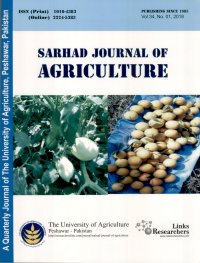The Economic Impacts of COVID-19 on Micro and Small Enterprises: Empirical Evidences from Oromia National Regional State, Ethiopia
The Economic Impacts of COVID-19 on Micro and Small Enterprises: Empirical Evidences from Oromia National Regional State, Ethiopia
Milkessa Wakjira, Fikiru Temesgen*, Chala Hailu and Dabesa Wegari
ABSTRACT
This article aims to assess the economic impact of COVID-19 outbreak on these businesses to provide policy recommendations to support MSE. Primary data and secondary data were used for this study as the source of data. Three multistage sampling techniques was employ to select 372 MSE in six district towns of Western Shewa Zone by administering personal interview. Descriptive statistics such as percentage, frequency, maximum, minimum, mean and standard deviation were used to measure the association and growth probability of MSEs. The major problems finding in the study area were facing multiple issues such as increase in cost of production, shortage of workers and reduction in sales and profit. More than 70% of participating respondents reported that they could not survive if the present trend lasts more than three months. As a temporary solution to sustain their business 169 (45.40%) reduced the number of their employees, 73 (19.60%) laid off their employees as the result of the pandemic crisis. The findings of study are consistent with previous studies and so that national authorities must continue taking a host of measures to provide support to ensure continuity and minimize damage in the small and micro enterprises sector. Therefore, for this study, Policymakers have to come together, and coordinate their work in the financial as well as the productive and service sectors in Ethiopia.
To share on other social networks, click on any share button. What are these?








